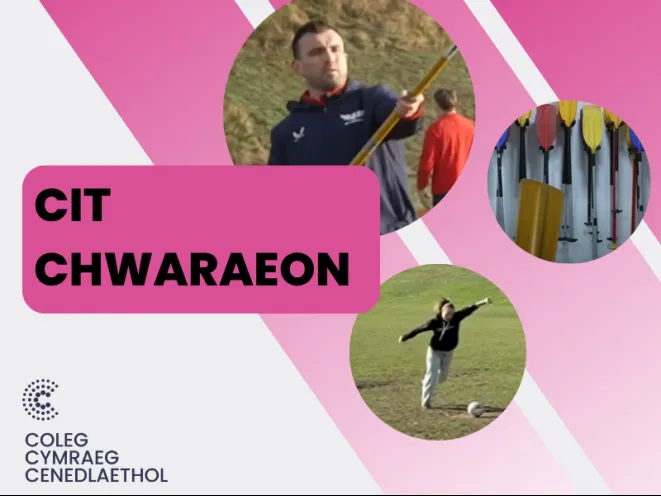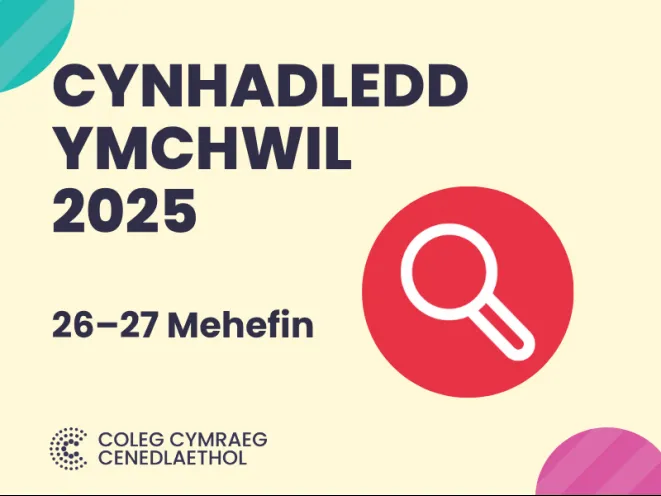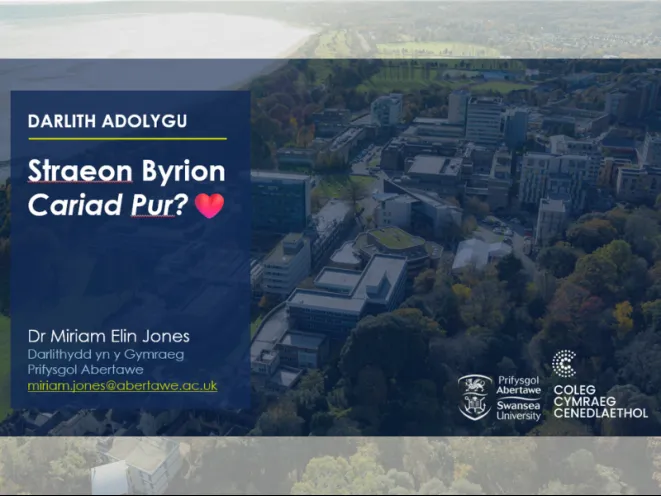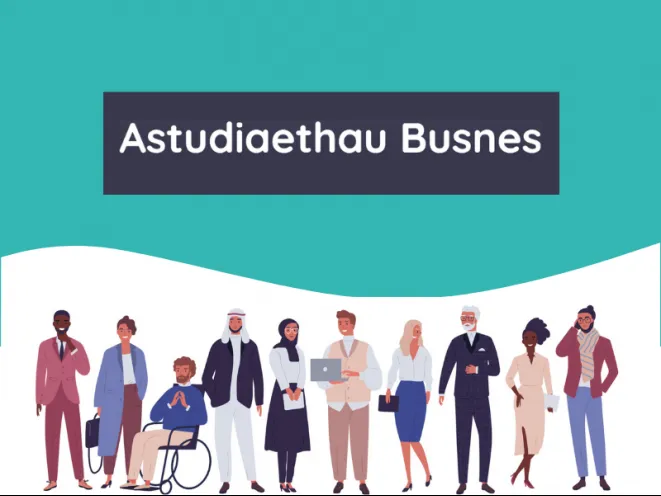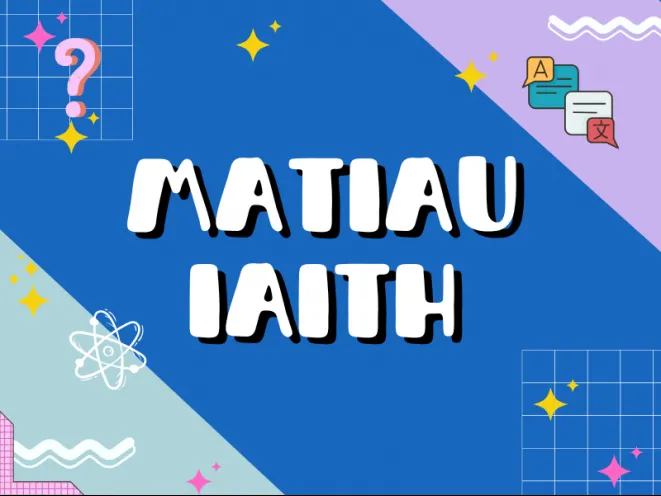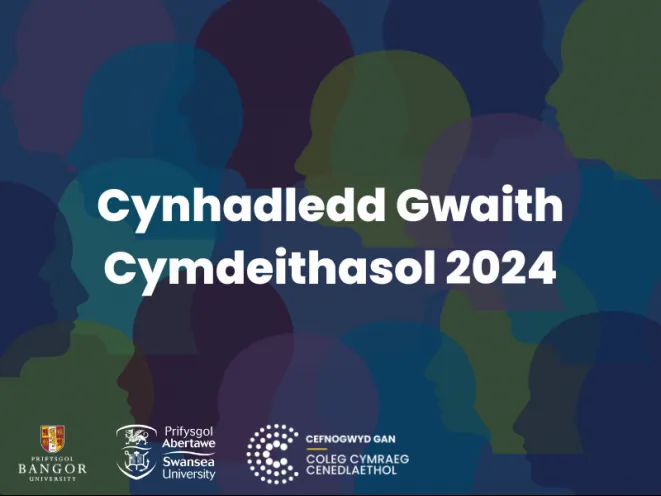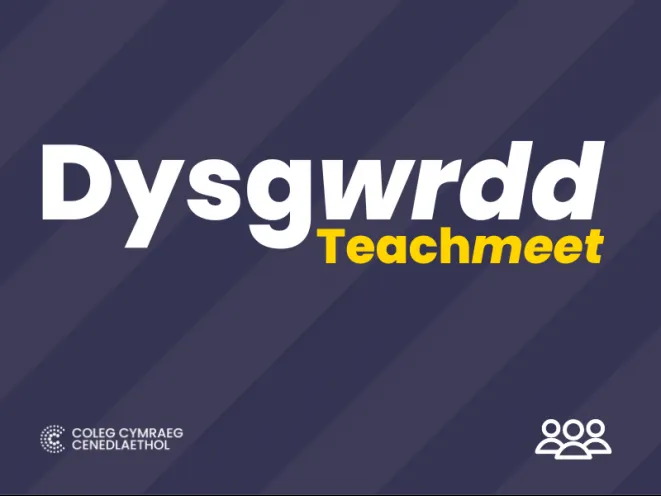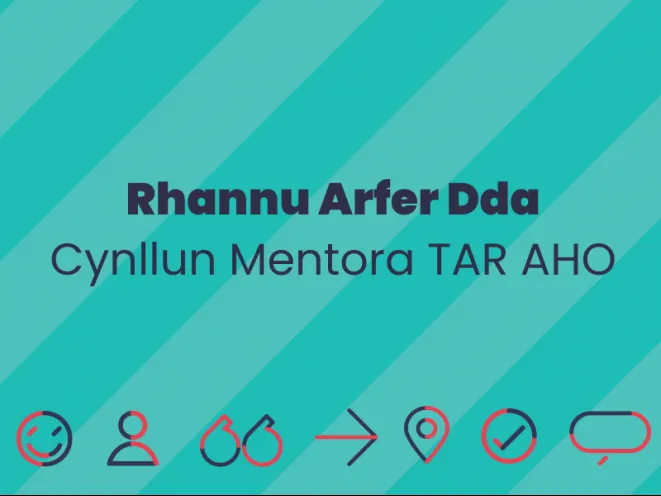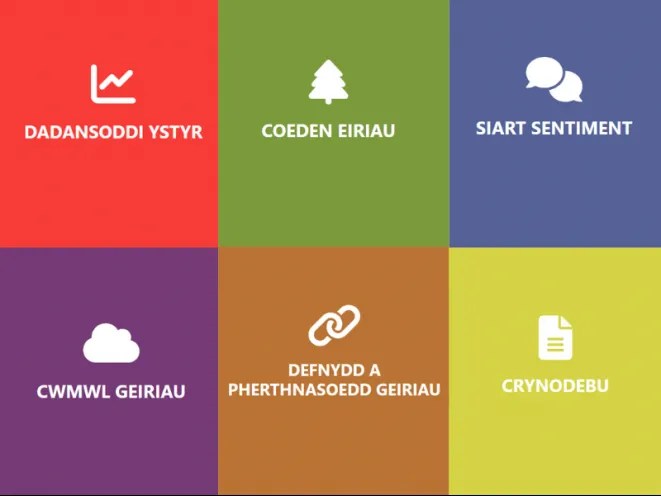This is a collection of e-learning Sport resources tailored for level 2 learners. You’ll find practical information on how to plan and run a session, the different jobs and responsibilities in sport and useful advice and insight into the everyday life of a variety of professionals in the field. The resource is split into three units: Planning and undertaking a Sports Session Roles and Responsibilities of Sports and Leisure Staff Working in the Sports Industry
Coleg Cymraeg Research Conference 2025
The Research Conference was held on 26–27 June at Aberystwyth University and the National Library, and it was streamed on the Coleg's YouTube channel. Recordings from the conference and copies of the research posters that were presented can be viewed by clicking on the links below.
Short Story Resources: Cariad Pur?
Resources to help study the two short stories in the book Cariad Pur? which is on the Welsh Second Language AS/A Level specification (U2 Unit 6: The Use of Language and the Short Story). The resources are to help with studying Beth Os? by Llio Mai Hughes and Trŵ Lyf by Marlyn Samuel. Resources include: Beth Os? Digital copy (PDF + Word) Trŵ Lyf Digital copy (PDF) Revision Worksheets (PDF) Video Lecture and Powerpoint presentation by Dr Miriam Elin Jones Video Lecture Transcript Llio Mai Hughes Author Interview Video + transcript Marlyn Samuel Author Inteview Video + transcript Resources created by the Department of Welsh, Swansea University, with funding from the Coleg Cymraeg Cenedlaethol.
Business Studies
In this resource you will have the opportunity to develop your knowledge and understanding of businesses and their markets. The resource is divided into six units: Exploring Business Marketing Personal and Business Finance Internatioln Business Principles of Managment Business Decision Making Here you'll discover information about Welsh businesses and companies that you can use to undertake further research or to complete assignments. You will also come across short exercises and case studies that will test your basic understanding. This resource targets learners that are studying business courses at level 3.
Language Mats for teachers
A collection of language mats that can be used by experienced teachers, newly qualified teachers, and PGCE students to develop Welsh language vocabulary of pupils within secondary subjects. The purpose of these language mats is to raise confidence and increase the capacity of individuals to use the Welsh language confidently when teaching their subject in secondary school. Language mats have been developed for the following subjects: Welsh Second Language Languages: French Biology Chemistry Physics Digital Technology Design and Technology
Dyfodol Cymru (Future Wales) - Urban Planning in Welsh
This online resource was created for planning students who speak Welsh by lecturers from the School of Geography and Planning (GEOPL) at Cardiff University. The aim is to provide information and insight into being a planner in Wales. It contains four videos of Welsh speakers discussing different aspects of being a planner; working in Wales and/or using the Welsh language in the workplace. In addition, there are some links to written resources that may be useful. The project team hope to continue developing the resource in the future.
Social Work Conference
Social Work Conference 2024 - The Best of Both Worlds: Connecting Social Work Research and Practice in Wales A collection of presentations from the Social Work conference held jointly by Bangor University and Swansea University in March 2024. The main focus of the conference was on current research and good practice within Social Work in Wales.
Meat Promotion
Beef and lamb production website for learners studying a Level 2 and 3 qualifications in Agriculture. Here you’ll learn about different aspects of the meat production industry, from finance and business management to suitable breeds and different systems. Get browsing! The website contains seves units on producing beef: Overview of the UK Beef Industry Beef Cattle Breeds Suckler Cow System and Source of Store Cattle Introduction to Beef Finishing Systems Managing Herd Fertility and Replacements Health and Welfare of Beef Cattle Business Considerations When Beef Farming and seven lamb production units: Overview of the UK Sheep Industry Breeds and the Stratification System Understanding the Ewe Year of the Shepherd The Lamb Market The Main Sheep Husbandry Tasks Business Considerations When Sheep Farming
Sharing good practice for middle managers
Panel discussion: Sharing good practice for middle managers (further education and apprenticeships) A recording of a panel discussion with four Further Education curriculum area managers as they discuss their approach to increasing bilingual / Welsh provision within their departments. They discuss their good practices as well as how they have overcome challenges: Yusuf Ibrahim, Assistant Principal – Higher Education, Academic Studies, Foundation and Adult Learning - Cardiff and Vale College (Chairing) Lucy Breckon, Work Based Learning Manager (Health, Care and Commercial Enterprises) – Pembrokeshire College Rhian Pardoe, Health and Care Learning Area Manager – Gower College Swansea Amy Thomson, Sports and Public Services Program Manager – Grŵp Llandrillo Menai Rachel Lewis, Construction Curriculum Manager – Bridgend College The event took place on the 5th of February 2025.
PGCE PcET TeachMeet
Are you studying the PGCE PcET course? (Post Graduate Certificate in Education, Post-compulsory Education and Training). Speak Welsh, or want to increase your confidence in using the Welsh language? Catch up with this session! Sgiliaith joined us to give advice on how to encourage and support students to work through the medium of Welsh, and an experienced staff member who now teaches bilingually in the sector highlighted some useful resources. This session took place on 29 January 2025.
Sharing Good Practice Videos – PGCE PcET Mentoring Scheme
Are you currently studying the PGCE PcET (Post Graduate Certificate in Education, Post-compulsory Education and Training) course? Do you speak Welsh, and are you keen to use the Welsh language in your career? If so, these videos are for you! The series includes six videos from staff who teach bilingually in the further education and apprenticeships sector and who have recently completed the PGCE PcET course. It is an opportunity for you to hear about their experiences and to get tips and learn good practices as you start your career in the sector.
FreeTxt
FreeTxt helps you analyse and visualize free text data in Welsh and English, such as data from surveys and questionnaires. FreeTxt enables you to perform up to six different types of textual data analysis for each file. You don't need to be able to code or learn how to create graphs, either - FreeTxt does the hard work for you!

